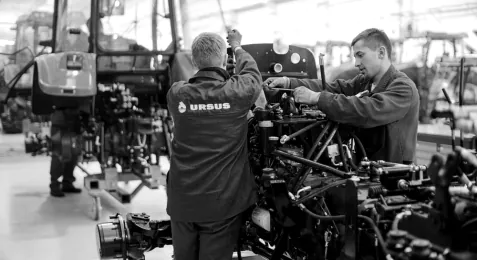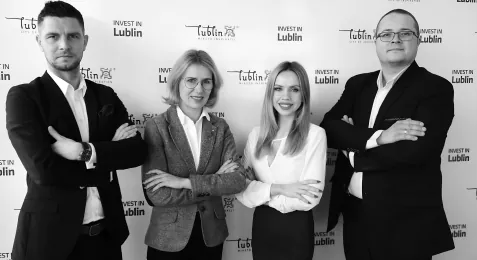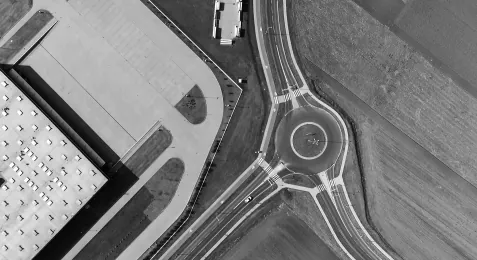Lublin Info Centre
Lublin – prime example of urban resilience
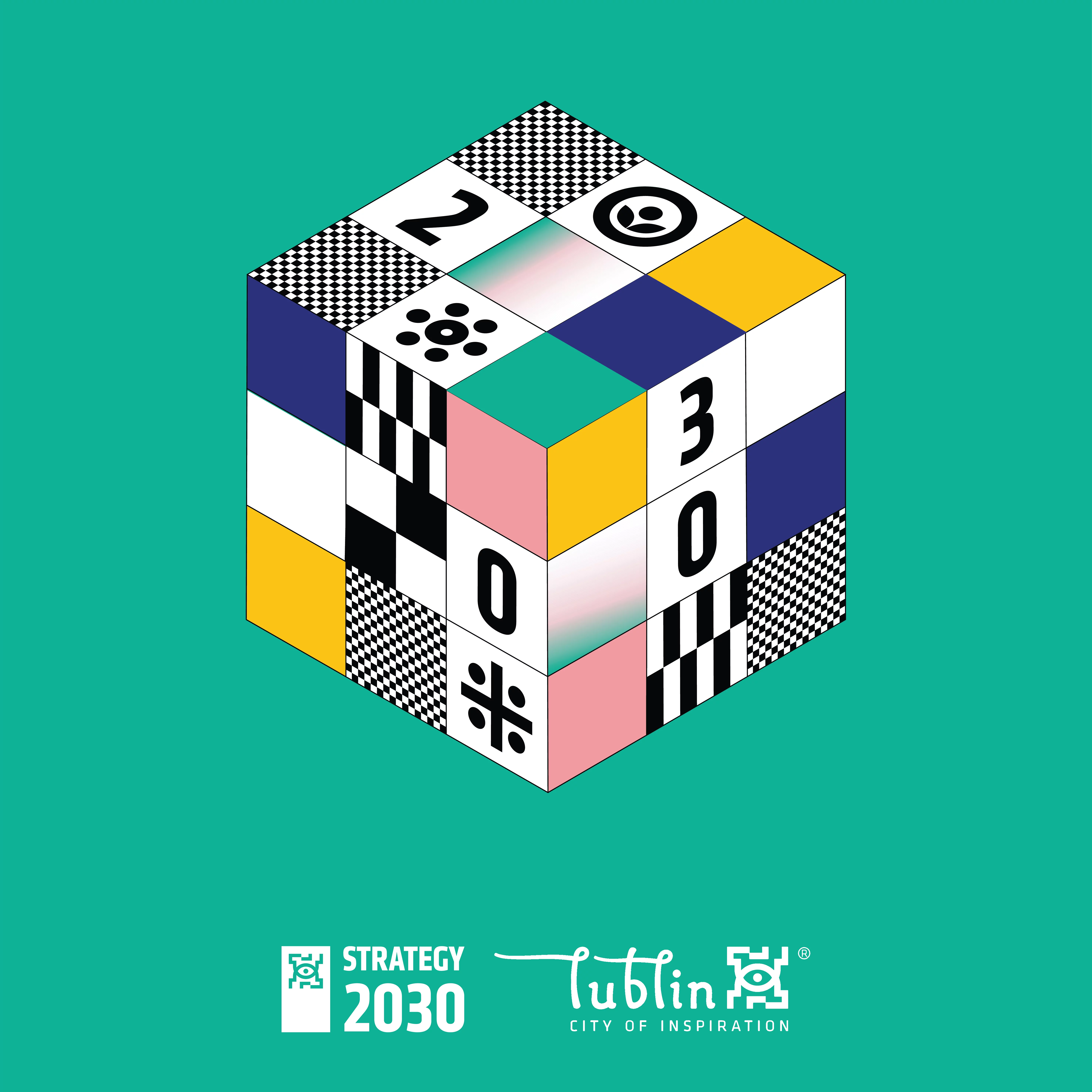
The main focus areas for Lublin’s resilience
- Diversified economy
Lublin’s economy does not have a clearly defined industry profile. Currently, Lublin benefits from its multispecialization being a place of development of modern and innovative companies from various areas of the economy. The diversity of Lublin’s potentials serves as a valuable asset, enabling the city to diversify its economic activities and establish an appealing brand built upon a wide range of products and services. Through the identification of seven smart economic specializations—derived from a thorough diagnosis of the city’s innovative potential—Lublin adapts to the evolving demands of the job market and business landscape. These specializations include the automotive and machinery industry, healthy society, intelligent networks and ICT, automated food processing and functional nutrition, chemical processes and specialty chemicals, modern business services, and innovative logistics. By implementing supportive measures, Lublin ensures it remains responsive to the needs of modern industries and knowledge-based services, nurturing a workforce with diverse competencies. This strategy has proven successful, as the city’s diversified economy has withstood pandemic challenges and even increased its potential during the COVID-19 pandemic. Domestic, Lublin-based companies with Polish capital played a key role in this. By 2030, further measures are to be taken to support especially local small and medium-sized companies so that they can grow rapidly by increasing assets, revenues, and employment, and to support their foreign expansion processes. These actions are synergistic with the creation of new investment areas, metropolization, and entrepreneurial culture. Undoubtedly, Lublin’s rich educational offerings play a crucial role in this process. With 9 universities, including 5 public institutions, Lublin annually supplies the local economy with a significant pool of talent, spanning technical, humanities, medical, and natural-agricultural profiles. This academic ecosystem not only supports the city’s economic diversification efforts but also fosters a dynamic environment conducive to innovation and growth.
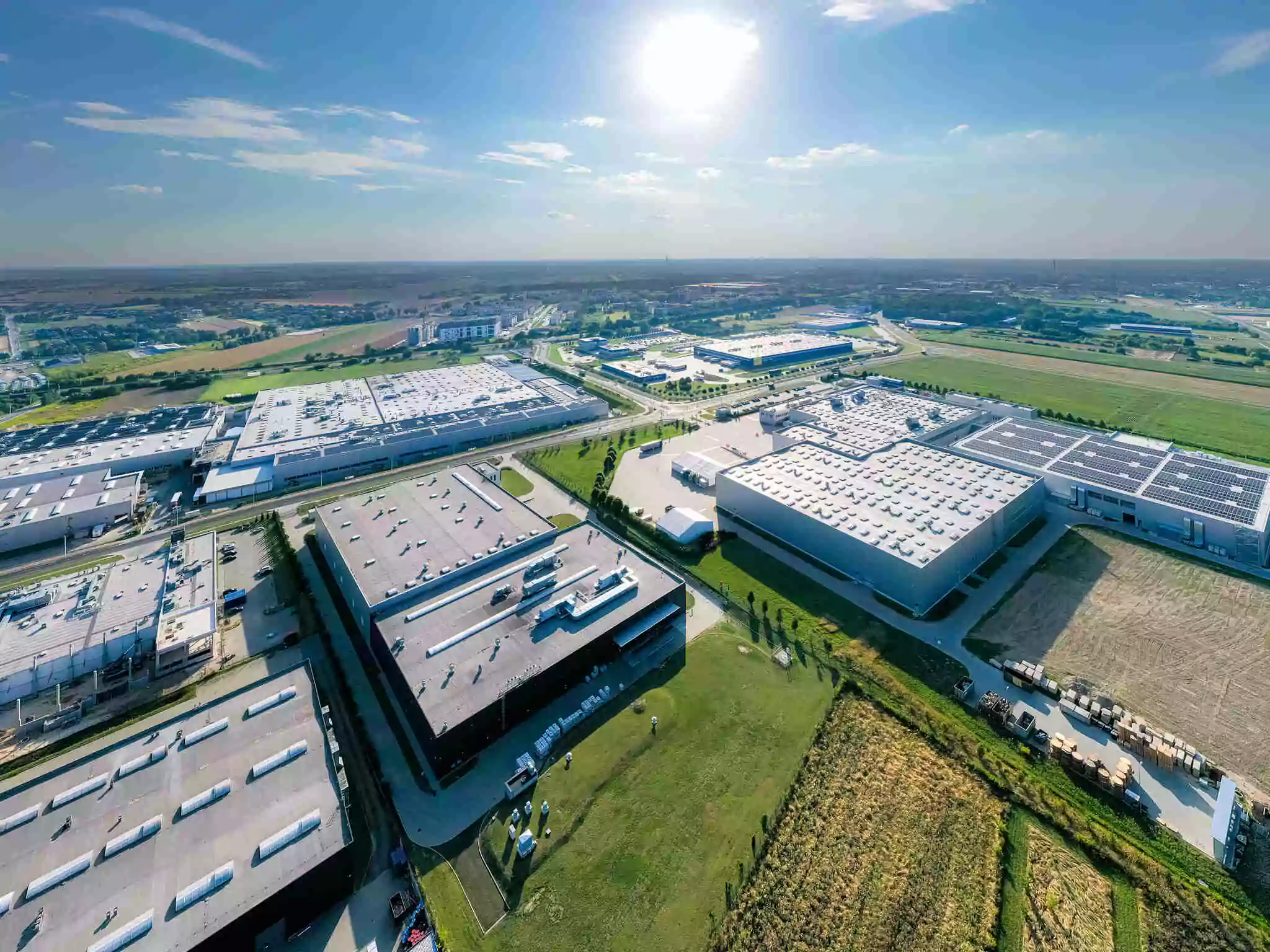
- Actions for improving the state of the natural environment and air quality and preventing environmental disasters
The main challenge that multidimensionally affects various aspects of Lublin’s functioning is environmental protection. Unsatisfactory air quality, rising temperatures, shortages of drinking water are consequences of urban development pressures, high-emission transportation growth, increased energy demand, and growing and irrational consumption. It is important, therefore, to shape these areas considering their impact on the environment. A coherent and extensive system of green areas, urban layouts designed to allow free airflow, low-emission buildings, highly efficient, and zero-emission transportation systems, and respect for available resources are key to the functioning of advanced, healthy, and resilient communities.
Lublin has long been committed to sustainable environmental policies, with a focus on improving natural surroundings and air quality while preventing environmental disasters. The newly developed Lublin 2030 Strategy, crafted in collaboration with residents, aims to make Lublin greener, more urbanistically sustainable, and ready for climate change in the next decade. Urban greenery is crucial for enhancing city dwellers’ quality of life, serving as both lungs and aesthetic enhancers for urban spaces. The significance of green areas became particularly apparent during the pandemic, with restrictions making outdoor activities in parks and squares the most sought-after leisure option. Consequently, Lublin aims to increase its green areas, which currently cover nearly 20% of the city’s land, with plans for new squares, green zones, rain gardens, and neighborhood courtyards. Additionally, the city is expanding its network of bike lanes and rental stations to promote sustainable transportation. Furthermore, Lublin is enhancing its network of bike lanes and rental stations to encourage sustainable transportation. Currently, there are nearly 200 kilometers of bike lanes, complemented by 625 municipal bikes, including 15 designed for children, and 129 rental stations. In addition, Lublin has integrated the Lublin City Bike system with public transportation, making it easier for residents to combine cycling with other modes of transit.
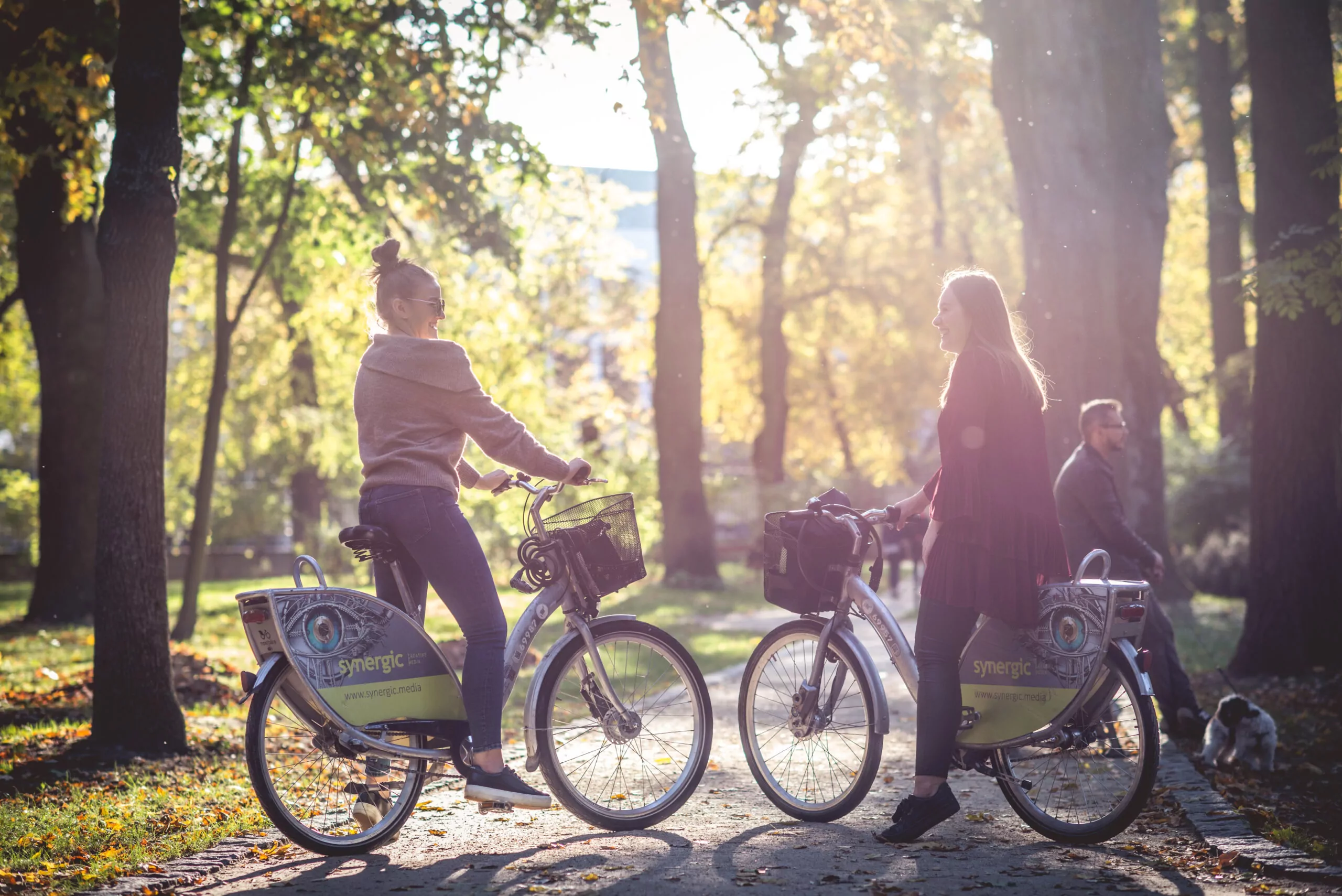
For many years, we have been implementing a series of pro-environmental investment projects aimed at improving the quality of life for Lublin residents while maintaining the idea of sustainable development. These include investments in modern and low-emission transportation, road infrastructure improvement, thermomodernization, and replacing inefficient heating systems
Since 2018, the city of Lublin has been implementing the MAKING-CITY project, aimed at addressing the issue of excessive CO2 emissions in cities and demonstrating the transformation of the urban energy system towards low-carbon cities based on the Positive Energy District (PED) concept. Thanks to numerous investments in eco-friendly public transportation, Lublin is one of the Polish and European leaders in zero-emission public transport. The city already boasts a 40% share of zero-emission vehicles in its entire fleet, with 99 trolleybuses and 40 electric buses currently in operation. Since last year, a hydrogen bus has also been operating on Lublin’s streets, with plans to purchase an additional twenty hydrogen-powered vehicles. In the new EU perspective, Lublin aims to further develop electromobility and purchase approximately 100 zero-emission vehicles.
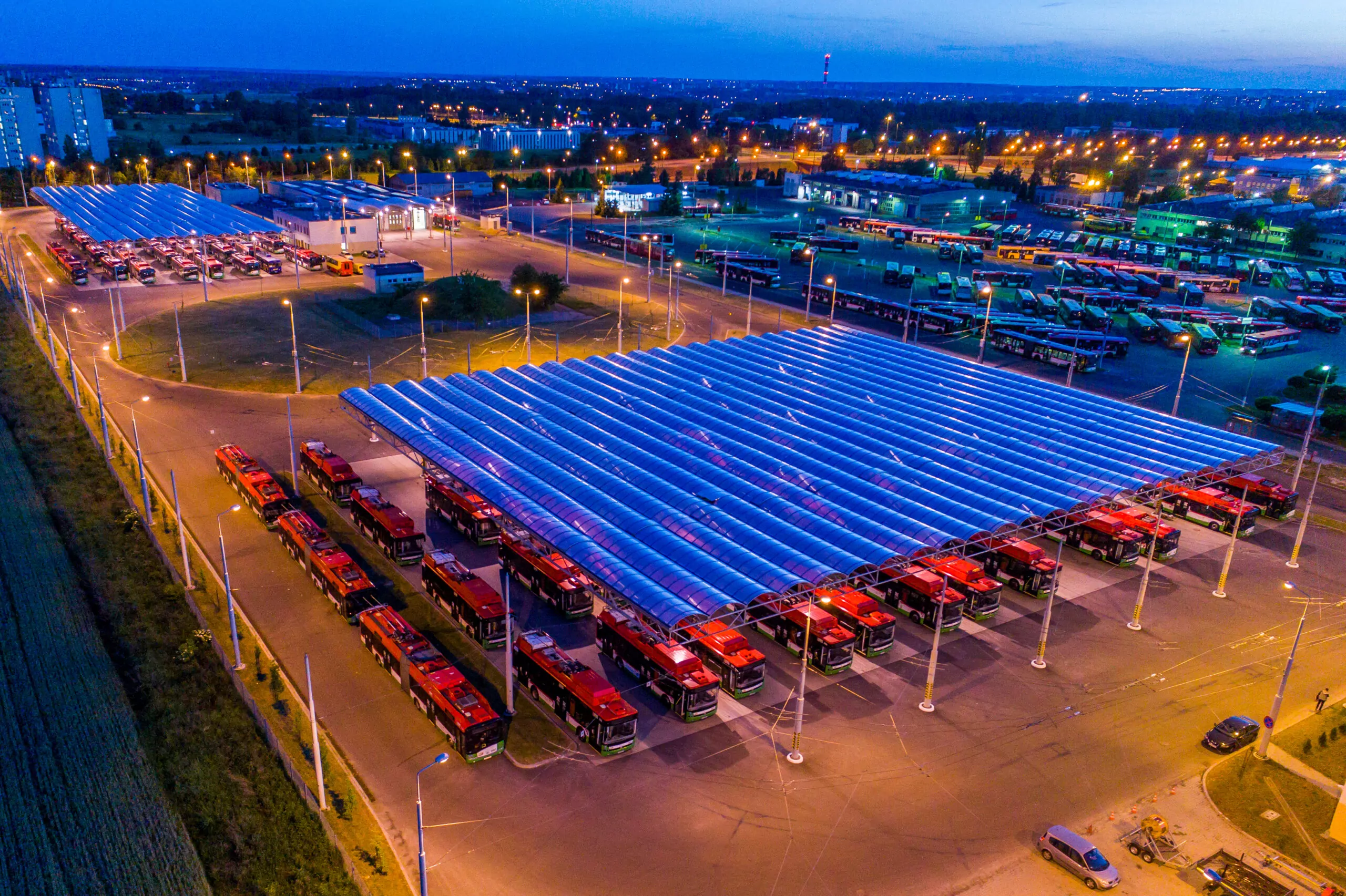
Another significant moment for the development of Lublin’s transportation was the signing of an agreement last year to purchase energy generated 100% from renewable sources to power trolleybuses and electric bus chargers. Due to the benefits of this solution, another agreement for the purchase of green energy will be in effect until the end of 2025.
Lublin also encourages biodiversity conservation and community involvement in environmental initiatives, such as the Citizen Budget and Green Budget projects. Revitalizing urban parks, like the Saxon Garden and Ludowy Park, and creating new green spaces are key components of Lublin’s green initiative. These efforts have earned the city recognition, including a first-place ranking in the Green City Ranking by Forbes magazine in 2021. Lublin also reduces mowing in urban green areas to protect air quality and promote water retention, with initiatives like the “Mow Less Here” campaign. The city is actively developing blue-green infrastructure, including rain gardens, to manage rainwater and improve tree health. Furthermore, Lublin continues its fight against smog through programs supporting the replacement of solid fuel heating sources and educating residents about smog’s harmful effects. Over the years, subsidies totaling over 6.7 million zł have been provided, leading to the replacement of approximately 940 stoves and boilers. The priority is to introduce changes that bring environmental and social benefits, improving the microclimate and residents’ quality of life. Urban greenery is a vital component of sustainable development, and implementing the Lublin 2030 Strategy will help strike a balance between urbanization and preserving green spaces.
Lublin Metropolitan Station – an ecological landmark of our city
The Lublin Station was designed to be one of the most environmentally friendly facilities of its kind in Poland and meets high standards of sustainability. It features a number of solutions dictated by environmental concerns.
For instance, it features a glass enclosure around the main hall to retain warmth efficiently. Additionally, a specialized concrete wall on one side harnesses sunlight during the day, gradually releasing stored heat at night. The bus shelters are equipped with transparent glass panels embedded with solar cells, serving the dual purpose of providing shade and generating renewable energy. Rainwater is efficiently repurposed for sanitation and irrigation purposes, while natural ventilation ensures optimal air circulation in the underground garage. Inside, a sophisticated heating and cooling system powered by heat pumps maintains passenger comfort. The station’s aesthetic appeal is enhanced by elegant steel pillars inspired by Lublin’s architectural heritage. This collaborative effort between Tremend and other stakeholders underscores our commitment to sustainability and innovation.
- Social cohesion
How we do so? By providing platforms for engagement and tools for participation, we empower residents to contribute to crucial decisions shaping our city. Initiatives like the Civic Budget, Green Budget, School Civic Budget, and Local Initiative offer opportunities for residents to implement their own ideas for enhancing urban sustainability. For instance, projects such as rain gardens and new squares, initiated by residents through the Green Budget, highlight our commitment to participatory governance. Notably, Lublin pioneered the adoption of such participatory instruments in Poland.
We plan the future of our city together with the residents, because in addition to the joint implementation of projects, we depend on constant contact with residents, consisting of exchanging views and formulating needs. The development of the Lublin 2030 Strategy exemplifies this approach, with social participation serving as its cornerstone. Through active engagement of both male and female residents, we ensured that community voices were integral to shaping the city’s development concept. The resulting socially inclusive Lublin 2030 Strategy, adopted in 2021, outlines our roadmap for sustainable growth until 2030.
A continuation of the consultation activities carried out as part of the work on this document was the “Plan for Districts” initiative, engaging residents and District Councils in discussions, walks, and workshops across 27 districts of Lublin. Together, we identified development priorities and co-created plans for each district, ensuring that local voices drive future urban planning endeavors. Currently, we are finalizing the details of these individual plans, reflecting our commitment to inclusive and community-driven governance.
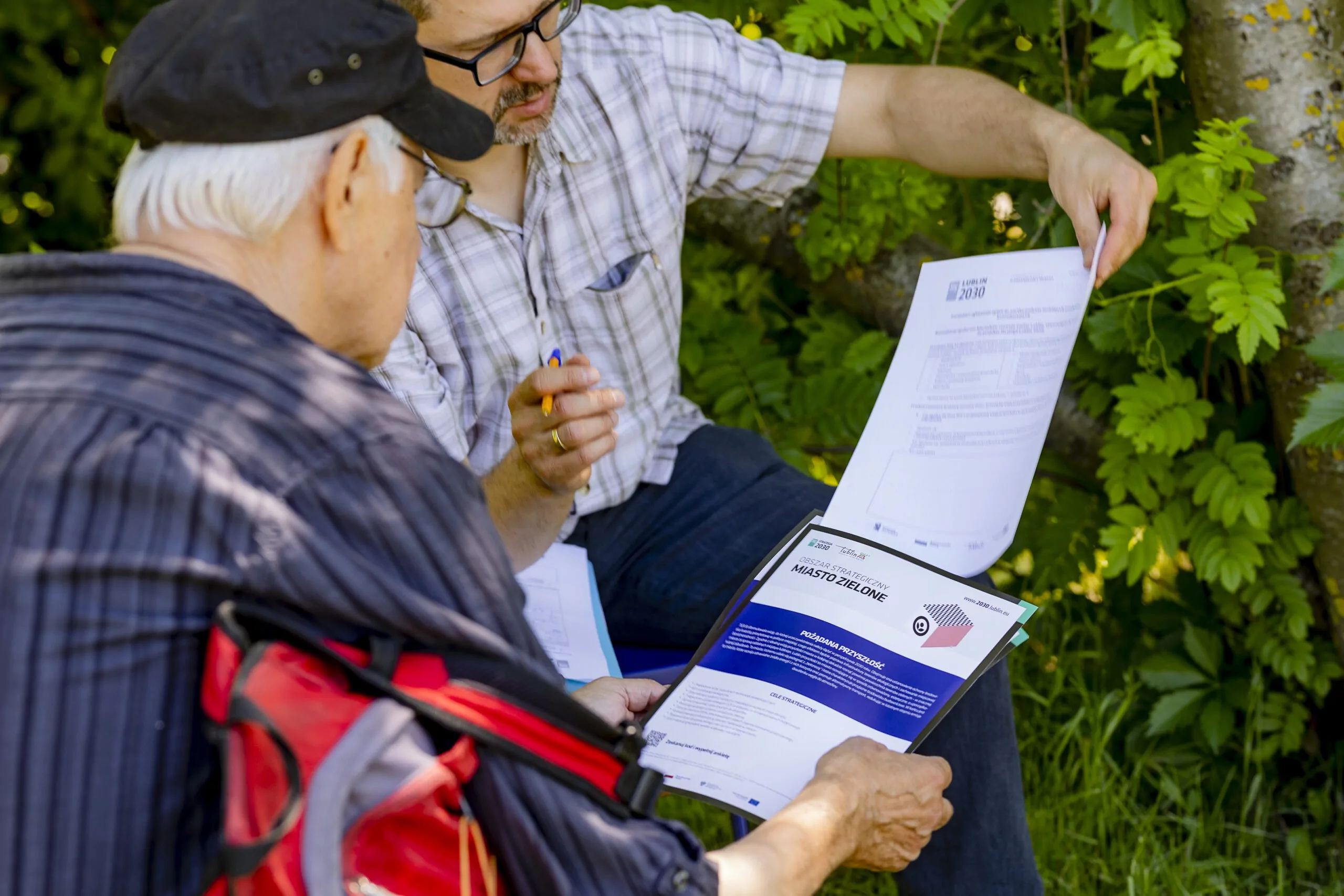
- Confronting the issue of depopulation in Poland and the aging of society.
In the perspective of half a century, we can expect a deficit of people capable of working ranging from 2 to 6.6 million (according to estimates by Professor Przemysław Śleszyński). Our city is therefore trying to address this problem. Lublin, as the first local government in the Lublin Voivodeship, has joined the group of cities offering support to couples struggling with infertility. Nearly 300 couples have applied to the city’s in vitro fertilization treatment subsidy program, and nineteen of them are currently awaiting offspring. The number of couples who have applied to participate in the program confirms the validity of our actions and the actual need for its implementation. The program gives many couples a chance at happy parenthood, primarily by eliminating or minimizing financial obstacles, which should be of secondary importance in such situations.

